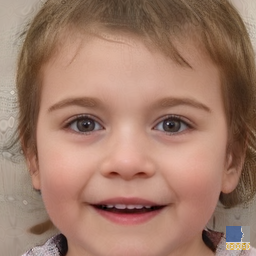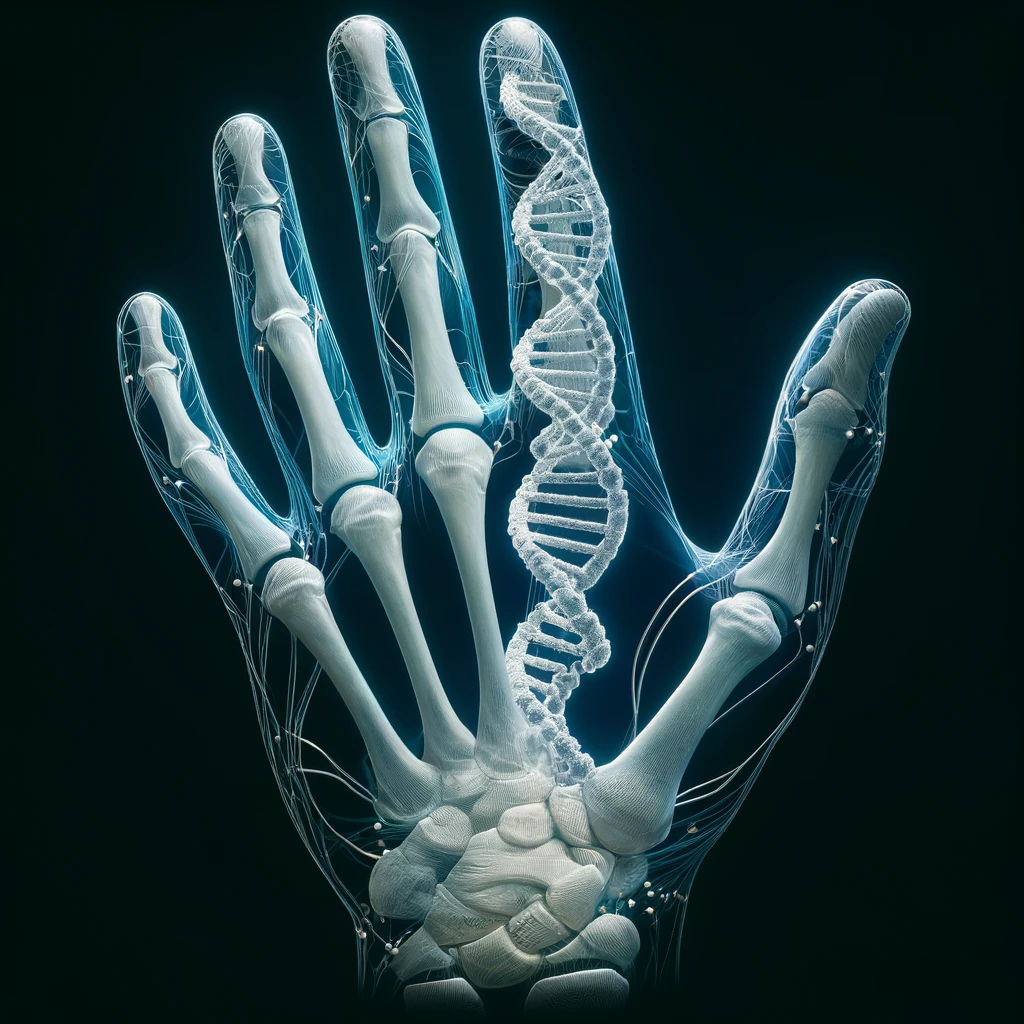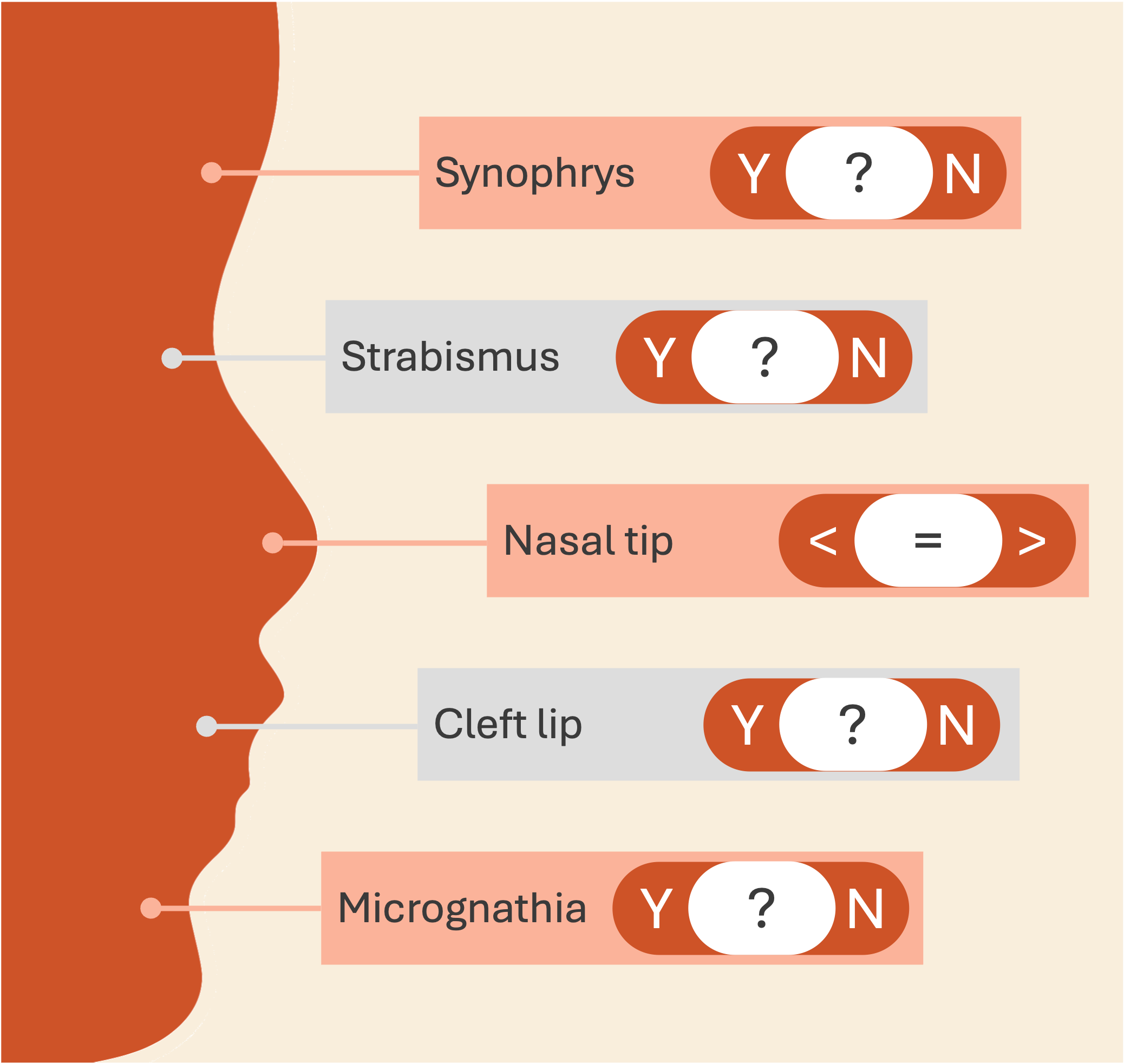Ongoing Projects

Photorealistic Synthetic Portraits
Here we show photorealistic synthetic portraits of certain rare diseases based on the cohort ... Read more
GMDB aims to improve the openness and accessibility of scientific findings and to enhance collaboration amongst researchers and clinicians. On this page, you can find all 27 active research projects approved since 2022 until today.
Integrating GestaltMatcher Database with PubCaseFinder and BioHackathon in Japan
Principal Investigator: Dr. Toyofumi Fujiwara
Institution: DBCLS
We would like to integrate the GestaltMatcher Database (GMDB) into our system, PubCaseFinder (Fujiwara et al. 2018) (https://pubcasefinder.dbcls.jp/). PubCaseFinder is a diagnostic support system for rare genetic diseases that has been in operation for eight years. It allows users to input patient symptoms using Human Phenotype Ontology (HPO) and obtain a ranked list of diseases based on...
Read moreImproving the support of next-generation phenotyping to Japanese patients
Principal Investigator: Dr. Hiroyuki Mishima
Institution: Department of Human Genetics, Nagasaki University
The next-generation phenotyping technology, such as GestaltMatcher, has demonstrated the capability of diagnosing patients with rare disorders by analyzing patients' facial images. However, the majority of the training set in the GestaltMatcher Database is predominantly Caucasian. This ethnic bias in the training set may reduce performance when analyzing Asian patients. Therefore, this proposal...
Read moreFederated GestaltMatcher
Principal Investigator: Dr. Mete Akgün
Institution: University of Tübingen
The primary focus is developing privacy-preserving machine learning techniques for handling medical data. One of our key areas of interest is rare disease analysis, which requires access to a substantial number of genomes for successful research. However, obtaining access to numerous genomes presents significant privacy challenges, particularly in compliance with regulations like GDPR. We...
Read moreInvestigating Facial Anthropometric Patterns in Rare Disorders
Principal Investigator: Prof. Ariane Machado-Lima
Institution: University of Sao Paulo
My research team aims to investigate facial anthropometric patterns in some disorders to assist in diagnosis. While our primary interest is in Autism Spectrum Disorder, we are also interested in exploring other syndromes to evaluate our models. We would greatly appreciate the opportunity to analyse GMDB data.
Read moreAI based diagnosis of Genetic Syndromes using Facial Gestalt Analysis
Principal Investigator: Prof. Sowmya Kamath
Institution: National Institute of Technology Karnataka, Surathkal, India
We are currently working on developing advanced AI models for the diagnosis of Genetic Syndromes (GS) through facial gestalt analysis. Facial gestalt, which focuses on recognizing specific dysmorphic features in the face, is a valuable diagnostic tool for identifying various GS. However, current methodologies that rely on geometric data, facial landmarks, and handcrafted features are limited by...
Read moreTo evaluate and improve how features from GesaltMatcher can serve as additional modalities to facilitate genetic diagnosis of patients with HPO information or clinical texts
Principal Investigator: Prof. Kai Wang
Institution: Children's Hospital of Philadelphia
We will use the GMDB database and related software tools such as GestaltMatcher to characterize features of suspected genetic diseases and to evaluate how best to cluster patients with the same diseases. For the first goal, we will use internal in-house datasets of images (including facial images) to perform a comparison to “match” to known diseases in GMDB. We will use a variety of software...
Read moreDeveloping a Facial Recognition Tool for Genetic Disorder Diagnosis
Principal Investigator: Dr. Mona Alshahrani
Institution: Saudi Data and Artificial Intelligence Authority (SDAIA) - National Center for Artificial Intelligence (NCAI)
Rare genetic disorders are often difficult to diagnose, with patients often undergoing years of testing and evaluation before a proper diagnosis is made. This can lead to delays in treatment and management, causing significant morbidity and mortality. In recent years, facial recognition technology and artificial intelligence have been used to aid in the diagnosis of rare genetic disorders, with...
Read moreEarly Screening of Craniofacial Anomalies in Newborn Faces (eSCANFace)
Principal Investigator: Prof. Gemma Piella
Institution: Universitat Pompeu Fabra
Congenital anomalies are a major cause of infant mortality and childhood morbidity, affecting 2-3% of newborns. It is estimated that 30% to 40% of genetic disorders produce alterations in the normal morphology of the face and the head (dysmorphology), which can impact swallowing, breathing, hearing, vision, speech, and -more importantly- cognitive development. Thus, craniofacial anomalies have...
Read moreDeep Facial Phenotyping with Mixup Augmentation
Principal Investigator: Mr. Jonathan Campbell
Institution: University of Oxford
The classification of genetic disorders from face images has the potential to assist with early diagnosis and effective treatment. A key objective in this field is to enhance the accuracy and robustness of deep learning models in classifying genetic disorders from face images for disorders that are not represented in the training data. In this paper, we propose the use of input mixup...
Read moreExplore un/self-supervised applications in GMDB
Principal Investigator: Prof. Bairong Shen
Institution: Institutes for Systems Genetics, West China Hospital
Deep learning models rely heavily on data, but in this area, GMDB is the only database and faces the difficulty of insufficient data. Meanwhile, face recognition databases have a large amount of data, and the similarity between GMDB and face recognition databases is that they are both facial images. Therefore, we try to train the model on unlabeled face recognition images first to learn facial...
Read moreA survey on facial feature extraction methods in a small data environment: the diagnosis of rare genetic syndromes
Principal Investigator: Mr. Lex Dingemans
Institution: Radboudumc
We would like to include the pretrained version of GestaltMatcher-arc in our survey study. This would require us to have access to the weights of the model, as published in previous work (GestaltMatcher-Arc). Of course, we will not (re)share these with anyone else outside our research group. For now, we do not aim to (re)train the model or use transfer learning, but are purely interested in the...
Read moreIncorporating GestaltMatcher Database to refine a deep learning-based point-of-care screening tool for genetic syndromes in children
Nov. 19th 2024
Principal Investigator: Dr. Xinyang Liu
Institution: Children's National Hospital
Delays in the diagnosis of genetic syndromes are common, particularly in low and middle-income countries with limited access to genetic screening services. We have developed and evaluated a deep learning-based point-of-care screening tool for genetic syndromes in children. The tool analyzes an individual’s facial image to predict the likelihood of a syndromic condition. To enhance screening...
Read moreAn AI-based multimodal system for early identification of rare diseases in primary care
Principal Investigator: Mr. Marcelo Martinez Conti
Institution: Foundation 29
The current diagnostic process for rare diseases is often inefficient and reactive, heavily relying on parental initiative and persistence. This prolonged and arduous process not only affects the physical health of patients but also imposes substantial emotional and financial burdens on their families. Project VALEN is a non-profit initiative which aims to address this challenge by...
Read moreAutomatic Phenotyping of Patients on 2D Photography (AIDY2)
Mar. 10th 2025
Principal Investigator: Prof. ahmed zaiter
Institution: EMLyon
In our AIDY project, we have already developed AI algorithms for recognizing genetic syndromes by combining frontal, profile, and ear photos for a few selected syndromes. Now, we want to increase the number of genetic syndromes to be recognized, so we will develop a new algorithmic methodology using state-of-the-art algorithms capable of handling a large amount of data without spending too much...
Read moreAnatomy-Informed Artificial Intelligence for Rare Disease Visual Ontology Creation
Apr. 16th 2025
Principal Investigator: Prof. Aaron Masino
Institution: Clemson University
Artificial intelligence (AI) has the potential to accelerate rare disease research and diagnosis, which remains challenging. However, the deep learning models underpinning modern AI systems function as "black boxes" that provide accurate predictions without explaining their conclusions. In this project, we aim to develop AI methods informed by facial anatomy to create a hierarchical ontology of...
Read moreDevelopment of a Multimodal Large Language Model (MLLM) for Early Screening of Rare Genetic Disorders in Children
Jun. 25th 2025
Principal Investigator: Dr. Yue Yang
Institution: Renmin hospital of Wuhan University
This project aims to develop a non-invasive, AI-driven screening system using Multimodal Large Language Models (MLLMs) to identify rare genetic disorders in children through facial and physical phenotype analysis. The system will integrate high-resolution imagery, 3D anthropometric data, and clinical metadata to improve early detection of conditions such as Noonan syndrome, Marfan syndrome...
Read moreLeveraging AI for Image-Based Diagnosis: Assessing Large Language Model’s Diagnostic Performance on Syndromic Genetic Disorders
Principal Investigator: Mr. Andrew Pregnall
Institution: University of Pennsylvania
Background: Syndromic genetic disorders often present with distinct cutaneous and/or facial findings that facilitate the diagnostic process. Specially trained machine learning algorithms such as DeepGestalt can obtain over 90% top-10 accuracy in diagnosing syndromic conditions from facial image analysis alone. Large-language models have recently emerged as powerful systems for evaluating...
Read moreIdentification of Women at Risk for Endocrine Disorders Using AI-Driven Facial Phenotyping
Principal Investigator: Dr. Zirui Dong
Institution: The Chinese University of Hong Kong
Women’s reproductive health underpins population sustainability. In China, infertility has risen from 11.9 % (2007) to 17.6 % (2020), driven by later marriages and limited support, which urgently needs faster, earlier screening to cut misdiagnosis and protect fertility. Endocrine disorders—premature ovarian insufficiency, polycystic ovary syndrome, hypothalamic amenorrhoea, hyperprolactinaemia,...
Read moreAI-based Predictive Modeling and Explainable Recommendation System for Rare Genetic Disorders Using GestaltMatcher Data
Sep. 19th 2025
Principal Investigator: Dr. Rana Khattab
Institution: faculty of computers and information, Mansoura University
Rare genetic disorders often present with distinct phenotypic patterns that can be challenging to identify and classify without advanced computational support. GestaltMatcher, as a FAIR database of facial and clinical data, provides an invaluable resource for developing artificial intelligence (AI) models aimed at improving diagnosis and clinical decision-making. This project proposes the...
Read moreDesign and Simulation of a Deep Learning-Based Facial Phenotyping Model for Genetic Syndrome Diagnosis
Oct. 2nd 2025
Principal Investigator: Mr. Vahid Sedighpour
Institution: Iran University of Science and Technology (IUST)
Genetic syndromes often manifest through characteristic craniofacial features, making facial analysis a valuable tool in clinical diagnosis. Traditional approaches, however, rely heavily on expert evaluation, which can be time-consuming and subjective. Advances in deep learning have demonstrated promising results in facial phenotyping, yet most existing models are limited to 2D images and...
Read more
